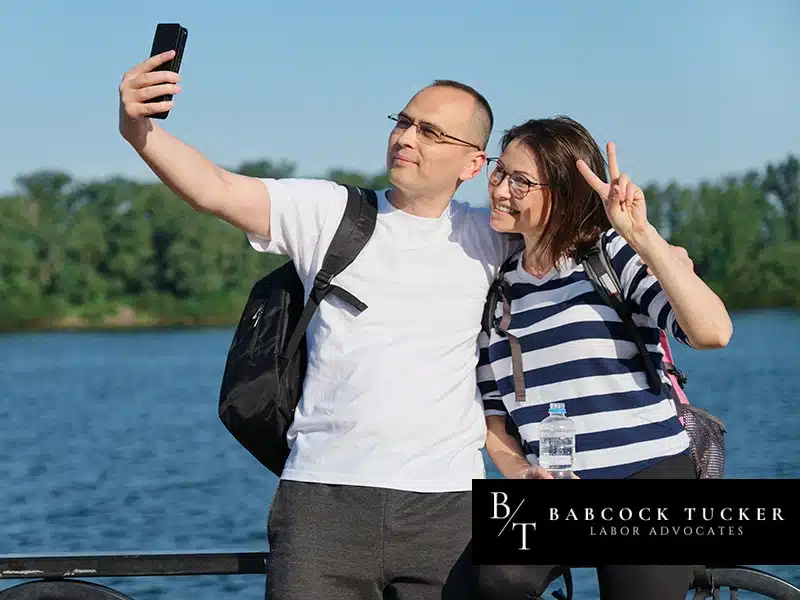
The Role of Social Media in Your Personal Injury Case
“The internet never forgets.” That’s how the saying goes, and while it’s plainly true, many people tend to forget this rule when sitting in front of a computer screen.
Social media sites are especially dangerous because people often treat them like an online diary, posting things they would never say out loud or to someone in person. And just because you post something for your friends and family doesn’t mean they’re the only ones who can see it. After all, words like “privacy” and “delete” are really only relative terms when it comes to the digital world.
A growing number of lawyers, insurance companies, and investigators are now using blogs and social media sites like Facebook, Twitter/X, and LinkedIn to gather valuable evidence in civil and criminal court cases all over the country.
Take the case of Oregon teen Jacob Cox-Brown, for example. In 2013, the 18-year-old was driving home drunk early in the morning on New Year’s Day when he struck two cars. He then fled the scene of the accident and drove home. Shortly after, Cox-Brown posted a Facebook status about it to his more than 600 Facebook friends, saying:
“Drivin drunk…classsic ? but to whoever’s vehicle i hit i am sorry. :P.”
After the local police department was made aware of the message, Cox-Brown was arrested for the hit and run accident when they found telltale signs of damage on his car.
In a press release, the local police commented that with a status like this one, “you have to figure that it’s not going to stay private for long.” And the same holds true for personal injury cases as well.
Why you should avoid social media after an accident
If you’re in the middle of a personal injury lawsuit following a car accident or other type of accident, you need to make sure you’re protecting yourself, especially on social media. Insurance adjusters, insurance investigators and attorneys often Google your information and use social media posts and pictures found online against you and your case.
Here’s an example: Let’s say you’re injured in an auto accident and you decide to sue the other driver for compensation. Several weeks or months after the crash, you upload a picture of yourself with friends or family on vacation, and you’re grinning from ear to ear in the photo.
The other driver’s insurance company involved in the lawsuit sees that photo and brings it to court to prove that you aren’t as injured as you claim. The insurance company can essentially use that seemingly harmless picture as evidence against you in court to reduce your compensation amount.
Even worse, they may attempt to make the case that your entire claim is false. Now, not only are you facing reduced compensation but also the potential legal punishments for filing a bad claim.

Top tips for using social media safely during a personal injury case
Here are five important tips to avoid possible hang-ups with your case due to social media:
- Don’t post about your injuries or accident. As hard as it can be, avoid posting anything about your injuries, your recovery, or details about the accident. These are all things that might be used against you if any inconsistencies are found between what you’ve told the insurance company and the info in those posts.
- Be very selective about posting any photos of yourself. If you had, say, a broken collar bone and you or one of your friends posted a picture of you smiling while you enjoy a night out, an insurance attorney could take those photos and use them to build a case against you for fraudulent claims. In their mind, if you’re able to go out and are having a good time, you may not be as injured as you say. At the very least, this type of post could reduce the amount of compensation you receive, and you may not have enough to cover your medical bills.
- Avoid accepting friend requests from strangers. A lot of dishonest insurance adjusters, investigators or attorneys will try to add you as a friend on Facebook when they’re gathering information, so only accept friend requests from people you know.
- Adjust your privacy settings. Make sure all of your social media posts are set to “friends only” or “private” and not “public.” This will keep your posts from being seen by anyone and everyone that looks you up. Sometimes even the private posts can be accessed and used, but adjusting the settings will minimize the likelihood.
- Do a Google search on yourself. An easy way to tell what type of information someone can find and use in your case is to Google your name. Make sure that the results that come up are all things that won’t harm your personal injury case. If anything has the potential to do so, remove it or make the post private.
It’s difficult to totally remove yourself from the internet, so there’s no guarantee that nothing will be found that can be used against you in your case. However, taking careful precautions and doing the best you can to avoid adding fuel to the fire will definitely help.
If you have questions about your social media activity and how it could affect your accident case in Colorado, contact Babcock Tucker today to discuss how our experienced Denver personal injury attorneys can help ensure you’re protected so you can get the compensation you deserve.




